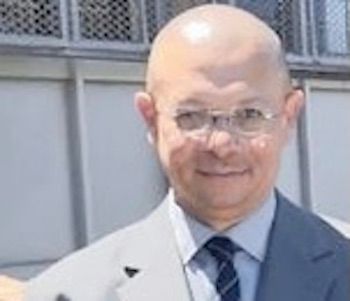Colin Arendse

Summary: Colin Arendse, a community anti-eviction activist, has fearlessly challenged the unconstitutional and illegal evictions of the elderly, the aborigine, the homeless, and the poor by Communicare, a local government social housing agency. A devoted Catholic, Arendse focuses on exposing housing corruption and the incompetence of politicians that has left thousands homeless and exposed to abject poverty. Arendse's work has not been without challenges; he has faced threats by police, and his volunteer work has taken a toll on his family life, for he often has to sacrifice his time and resources to support his campaigns.
Profile: As a child, Colin Arendse learned about discrimination from experiencing apartheid in South Africa. “While at high school,” he recalls, “during the turbulent late 70s/80s and in the heart of the struggle, we had to endure many difficulties under a brutal system that was designed to make life as difficult as possible for everybody who was not classified ‘white’.”
It was this discrimination, as well as his dedication to the Catholic church, that led Arendse to become a lifelong activist. He and others were made aware of “the inhumane system of apartheid and what we as youth could do from within the church to change that.” Arendse frequently pretended to go to “innocent” youth meetings while instead attending gatherings aimed at fighting for human rights.
Much of Arendse’s activism has recently focused on Communicare, a governmental social housing agency, along with its subsidiary, Goodfind Properties. These companies have evicted hundreds of South Africans from their residences; Arendse has maintained that Communicare is not the legal titleholder of the land and buildings they claim to own. He has fought both the government and the company in the courts, and it has not been an easy battle, despite the patent consequences of Communicare’s actions. One example cited by Arendse:
“A woman who heads the household faced eviction while her husband recovers from a severe stroke. She looks after her sister (also a paralyzed stroke victim), who is confined to a wheelchair while her son is a schizophrenic patient. This brave woman is unable to work as she must care for three patients on a 24/7 daily basis. I am in the process of obtaining help for this destitute family to at least meet their basic human needs.”
Arendse does more than fight illegal evictions. He and fellow activists have also challenged Cape Town’s plan to build a highway through residential areas. The plan is still in limbo because of Arendse’s opposition.
Because of all these actions, Arendse faces continual threats and harassment:
“While exposing some corrupt police members (another passion of mine), I have been threatened by the very people who are supposed to uphold the law. Two captured cops threatened me inside a Court building while another dirty cop, with known links to the gang underworld and who routinely facilitates the disappearance of dockets, also threatened me after I exposed blatant police corruption.” Arendse says that situations like this have followed him “like a curse” for decades.
In addition to the threats, Arendse sacrifices time with his family as well as his financial well-being to do what he believes is right: “The public,” he says, “is sometimes unforgiving as they expect me to assist them for free, even though I am an unpaid volunteer.”
Nonetheless, the desire to help others and combat injustice that he acquired as a child continues: “I have no intention of quitting activism.”
